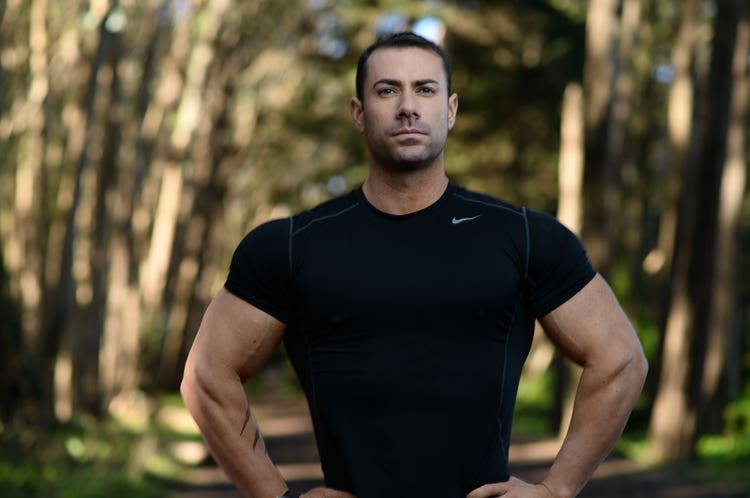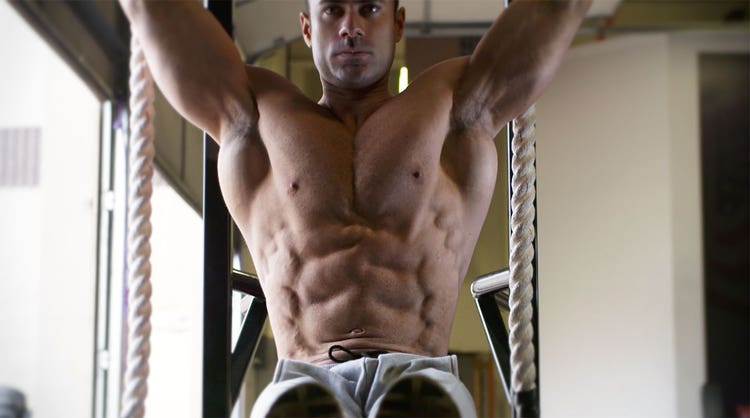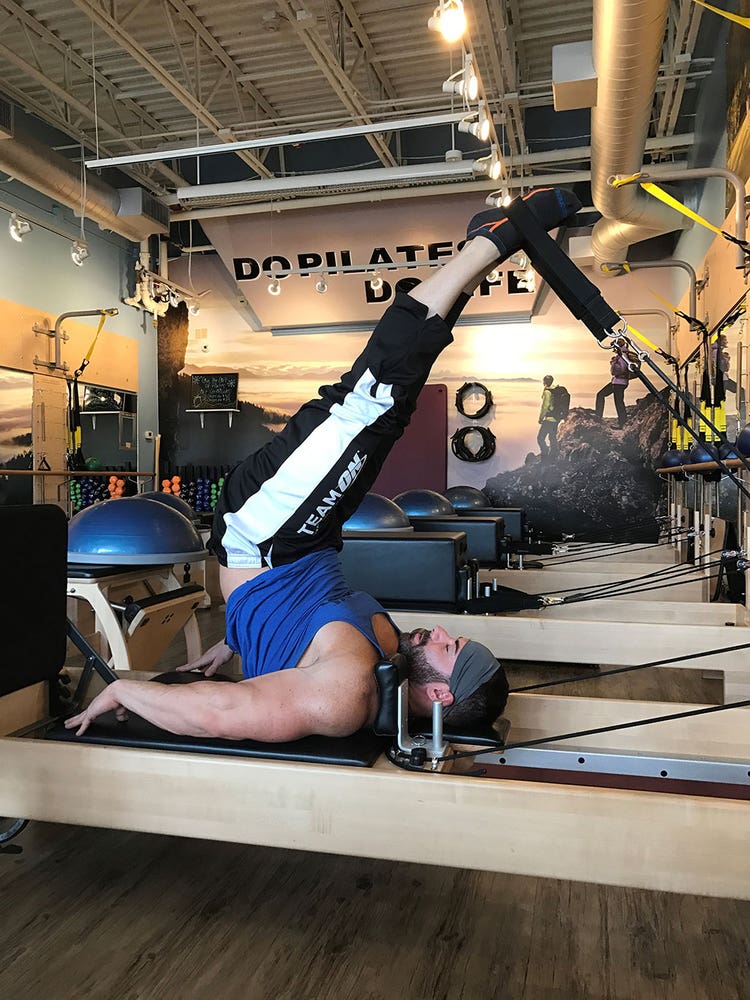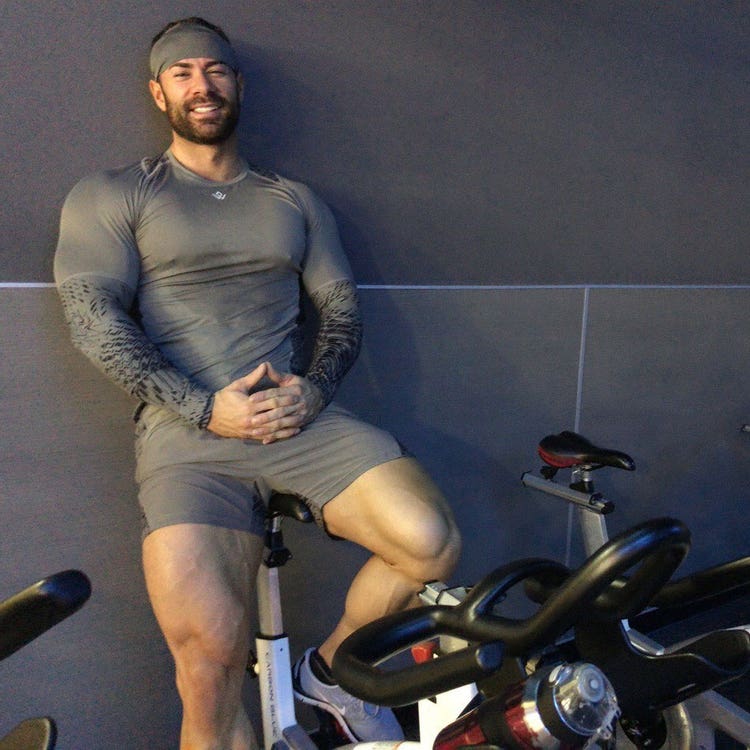Alex Carneiro Raises a Goal

Celebrity fitness coach shares his tips to tap your desire for results.
Ranked 10th in the world as a physique competitor and now a sought-after fitness and nutrition coach, Alexandre Carneiro is rare among his peers as a Latino competitor (and the first such spokesperson for Optimum Nutrition). But he was a typical, video-game-obsessed teenager whose family had a history of obesity. Typical, that is, until he tagged along with his older brother to the gym. There, he was mesmerized and inspired by the superhero size of some of the big guys lifting heavy weights.

Carneiro’s parents invested in a personal trainer whom Carneiro credits with giving him “a chance to learn and a chance to do the homework” for himself, to keep him curious and focused on becoming his best. That experience inspired him to come to the U.S. to study kinesiology, nutrition and fitness. Without a role model, he did his own research, and then he decided to hire a coach to prepare for his first competition. He gained more insight from his coach; then he went on to his first national competition and hired another coach, and gained a bit more insight, and as he continued to learn more, he found that knowledge was power and began to see results.

Initially fueled by naysayers, Carneiro now finds motivation from within for himself—and for others, as his youthful curiosity has blossomed into a passion for helping others achieve good health. 24Life recently spoke with Carneiro about goal setting, motivation and staying healthy on the go.
24Life: You’ve won several medals and awards in fitness competitions. Are those achievements what drives you?
Alex Carneiro (AC): No, the initial desire was using negative energy and turning it positive. The negativity people would feed me, I would spin it around and use that energy to propel me. During those workouts, I sometimes would think, “It’s 10:30 at night; I’m exhausted.” I just remember those little voices in the back of my head saying, “You’re not going to be a fitness model. You’re not going to be on the cover of a magazine.” Instead of getting angry, I just said, “OK.” I would rather have my actions speak louder than my words. By the age of 23, no one ever questioned me again. [Today,] I have to fuel myself. I can’t look for motivation in third-party sources. I have to look within myself to find that motivation.
24Life: So what’s your process for setting a goal and then making a plan to achieve it?
AC: The first thing I do is write it down. When you write it on a piece of paper, you have something tangible. Then I ask myself seven times, “Why do I want that goal to happen?” When most people say, “I want to lose weight,” I ask them, “Why?” They might say, “Well, I just want to be healthier.” Once you get to that second or third why, it goes from “I just want to lose five pounds to look better” to “I am insecure and see myself the way I don’t want to see myself.” Then you have to ask why one more time.
That’s usually when people really put thought into it and find their true demand for that goal.
Then you’ve got to break it down into small processes. If I have to gain five pounds of muscle, I have to break it down in terms of nutrition and exercise. I need to go to the gym five times a week. I need to eat 300 grams of protein, 400 grams of carbs. Now I’m targeting numbers and obtainable measurements I can hit every day.
People lose that desire because they don’t reach their goals the way they wish they would. And that’s because they never really spent the time to systematically break down how they would get there.

24Life: Once you’ve established your goal, how do you stay motivated? Is it easier to stick with it once you’re in shape?
AC: Motivation is, without a doubt, the hardest component. There isn’t a single answer, but there are things you can do on a daily basis to sustain that motivation. I tell my clients that you’re like a cell phone; you don’t go to sleep and leave your cell phone uncharged. You charge it, so when you wake up, it’s at 100 percent, and you don’t operate at 15 percent at the beginning of the day.
I also tell them, when you wake up, don’t check your phone or bombard yourself with the negativity that’s out there on social media. Instead, drink a glass of water, stretch and meditate for five or 10 minutes. For people that don’t know how to meditate, just sit down in a quiet place, breathe in and breathe out for five to 10 minutes, and think about how your day’s going to go progressively. Then read, watch or listen to something motivational. Read a paragraph of a motivational book or an article, listen to a motivational podcast.
Here’s the tricky part. People lose their motivation throughout the day. Your boss might be yelling at you, or you might see negative comments on social media—the world is full of negativity. And it’s no different for people who are already in shape. There are days when I truly don’t want to do anything and could sit on the couch all day and watch TV and play games.
When those kinds of things happen to you and you start losing that motivation, just do the four things you started in the morning: drink your glass of water, breathe in and breathe out, watch another video, and if you get a chance, get your heart rate going. Exercise makes your heart rate [increase], and that triggers emotion. If you can combine that emotion with a mental picture of what you want, boom! Right there you’ve got the motivation you need. And when I need more, I remind myself that if it were that easy, everyone would be doing it!

24Life: Do you have any rituals when it comes to how you nourish mind, body and spirit?
AC: Absolutely. One of the biggest things is being grateful for what I have in front of me. When I eat, I am grateful for having food in front of me. There are so many people who don’t have food in front of them. When I go to the gym, I’m grateful for the chance to improve myself, to improve my health and live longer. If people were to look at exercise as a chance to increase their lifespan and spend more time with loved ones, they might give it a better chance.
At the end of the day, I spend a few minutes thinking about whether my day was productive and how I could potentially have done it better. I am really happy about myself if I can say, “You know what? I did everything I had to do today.”
24Life: How do you approach good nutrition when you’re always traveling?
AC: You must have balance, and balance is a very tricky word. At one point in my life, I was obsessed, and I would look at food only as numbers. I wouldn’t seek taste and pleasure from eating. I was traveling so much that if I messed up or overate, I would think, “OK, I’ve got to go to the gym and burn these calories.” That really created a lot of problems with my motivation because then I would do what I told people you shouldn’t do: I would say, “Screw it. I’m going to mess up for the rest of the night.”
I’ve been able to balance my eating, even if I travel, because I plan ahead. If I’m on a plane, I carry one of Optimum’s protein bars. Then when I land, I research where I can eat. The best advice I can give is to use good judgement and not give into craving something and eating whatever fast food is available right now. And if you do have to eat fast food, you can make some choices that are better than others.
24Life: What advice do you have for someone just embarking on a fitness journey, who may be a bit intimidated by the overwhelming amount of information?
AC: Keep it as simple as possible. On Monday, there’s an article about how good caffeine is. By Thursday, there’s an article about how caffeine is bad for your health. There’s always new research [that can contradict and confuse you]. Ask yourself seven times why you want to reach your goal; peeling back the layers to get at that motivation is the foundation.
Then do two things: move more and make better, healthier nutritional choices. I tell clients, you’re human, you’re not perfect. The only difference between you and me is that I move more. I want people to finally realize, “OK, if I’m walking a mile today, I won’t feel discouraged that I’m walking [only] a mile.” The next day, I want you to walk 1.1 miles, and then 1.2 miles, and so on.
You need to have a progressive, measurable goal. Even if you’re starting at zero, it’s a number, a place to start. If you don’t have anything to measure yourself with, that’s when you lose motivation. Then you go all over the internet trying to find a fast and easy solution. Forget the words “fast” and “easy.” Those are two words that should not be associated with anything related to wellness, health and fitness.
Photo credits: Mark Kuroda, kurodastudios.com; Alex Carneiro
Grooming: Katie Nash, katienashbeauty.com